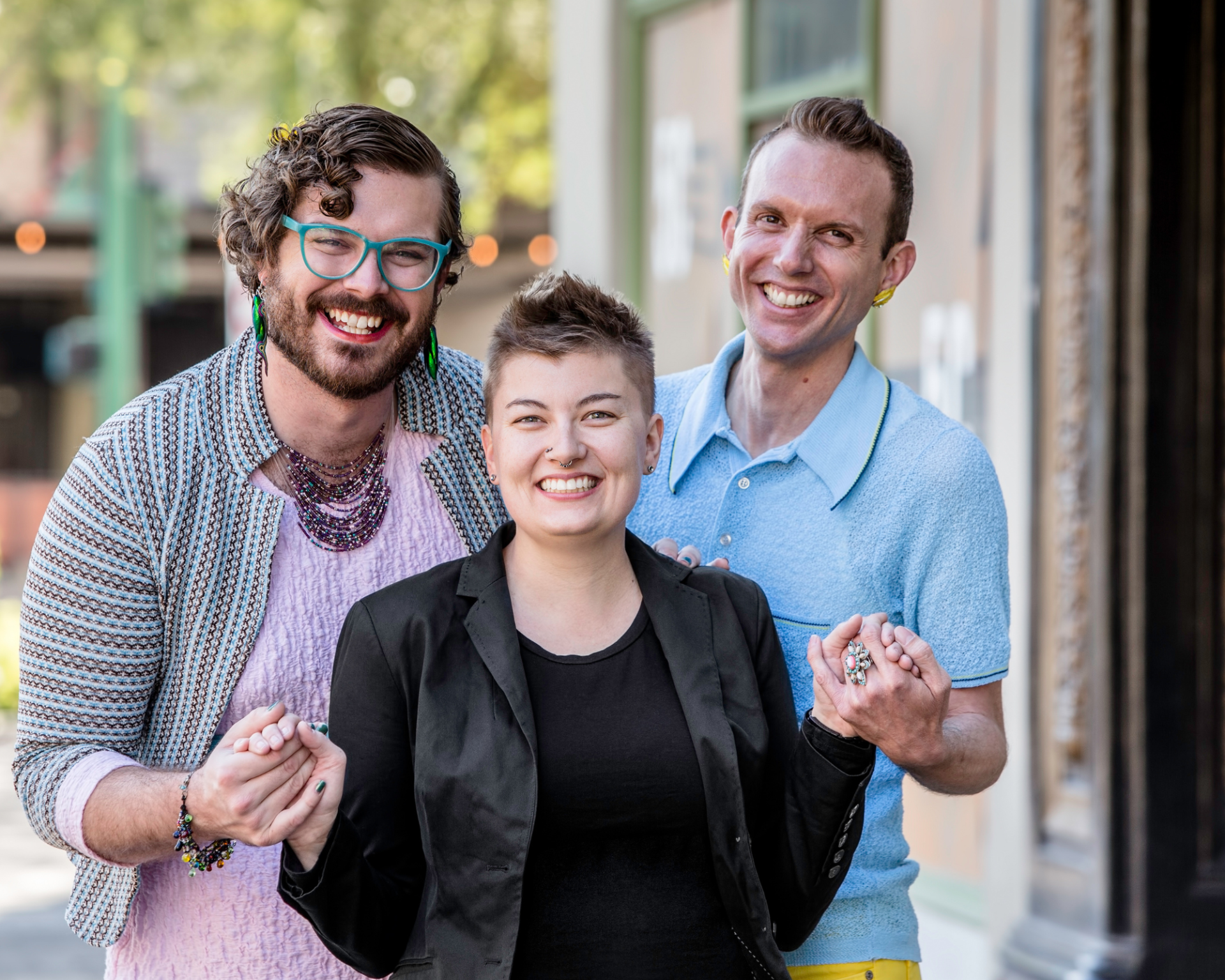UNSW’s Gender Equality Hub to drive systemic change
12 March 2025

Professor Pauline Grosjean, Justice Jacqueline Gleeson, Angelica Ojinnaka-Psillakis, Cilla Robinson and Professor Rosalind Dixon.
Photo: Chiara Gavuzzi
The newly launched Hub will tackle critical gender equality issues, bringing together experts from academia, law, and advocacy for lasting societal impact.
In a world where the voices of cis and trans women plus marginalised communities continue to face systemic challenges, platforms that offer safe spaces for open dialogue and advocacy have never been more vital.
At the launch of the UNSW Gender Equality Hub, a high-level discussion featuring a High Court Justice, a former United Nations representative and a top legal professional took place under Chatham House rules – a framework that ensures anonymity and confidentiality – to safeguard the sharing of personal gender identity experiences.
The necessity of protecting these voices and their urgent conversations underscores the importance of the newly launched Hub. One of its purposes is to shape a more inclusive society through confidence in self-expression.
A hub for action
The Hub’s launch, on Monday at the Michael Crouch Innovation Centre at UNSW's Kensington campus, marks a significant step forward in the fight for gender equality.
Led by UNSW Law & Justice's Professor Rosalind Dixon, opens in a new window and the UNSW Business School's Professor Pauline Grosjean, opens in a new window, the Hub aims to be a launch pad for real-world impact, where research, policy innovation, and advocacy converge to address the systemic issues facing women and marginalised gender-diverse communities.
Strategically timed to follow International Women’s Day, opens in a new window, the launch sends a strong message: gender equality is not just the focus of a once-a-year event, but an ongoing commitment to building an inclusive society year-round.
“This is a tough time for equity and diversity. But we are determined to make sure those values are shored up against attack – and advanced in legal and policy reforms. To do that, we need the data and the analysis. And that is what the Hub will provide,” Prof. Dixon said.
“This is not just about discussion; it’s about driving tangible, systemic change.”
Key research areas
The UNSW Gender Equality Hub will focus on four key research areas:
Gender norms and implicit bias
Gender and democratic resilience
Training and empowerment
Gender equity in the workplace and in care.
These areas will guide the Hub's efforts to create transformative change in both the public and private sectors.
The initiative will also collaborate with a diverse range of global partners, including the Centre for Sex and Gender in Health and Medicine at UNSW, opens in a new window, the Division of Societal Impact, Equity & Engagement at UNSW, opens in a new window, the Resilient Democracy Lab, opens in a new window, the Gender Violence Research Network, opens in a new window, the European Bank for Reconstruction and Development, opens in a new window, and the Equimundo Centre for Masculinities and Social Justice, opens in a new window.

Building confidence in the face of barriers
The launch event featured a distinguished panel of speakers, including High Court Justice Jacqueline Gleeson, Cilla Robinson, partner at King & Wood Mallesons, and former Youth Representative to the United Nations, Angelica Ojinnaka-Psillakis. It was chaired by Prof. Dixon.
Under Chatham House rules, direct quotes cannot be shared, but the key takeaways from their discussion on overcoming self-doubt are universal.
The panel explored how self-doubt can both hinder and drive growth, with speakers noting its potential to prompt deeper reflection and better preparation. They emphasised the importance of supportive communities and mentorship in overcoming these challenges, particularly for those facing systemic barriers tied to race, gender, and class.
The conversation also addressed the role of professional environments in shaping confidence, with the panel noting the prevalence of drinking cultures in sectors that include law, with a shift to healthier practices including exercise and meditation flagged as essential for resilience.
The discussion concluded with a focus on reverse mentoring and anti-racism training, key tools in fostering more inclusive and empathetic workplaces.
Ultimately, the speakers called for greater collective action, acknowledging that many of the women present would not have been there had they not been supported and sponsored along the way.
A clear path forward
The UNSW Gender Equality Hub is a commitment to accelerating action. Through collaboration across academia, legal sectors, and advocacy groups, the Hub will work to amplify voices, advocate for policy change, and produce research that can drive gender equality forward – within Australia and internationally.
“As we continue this long-term effort, we must remain committed to breaking down barriers and empowering individuals to reach their full potential,” Prof. Dixon said.
Media enquiries
For enquiries about this story and interview requests please contact Ben Bertoldi:
Tel: 0405 042 096
Email: b.bertoldi@unsw.edu.au





